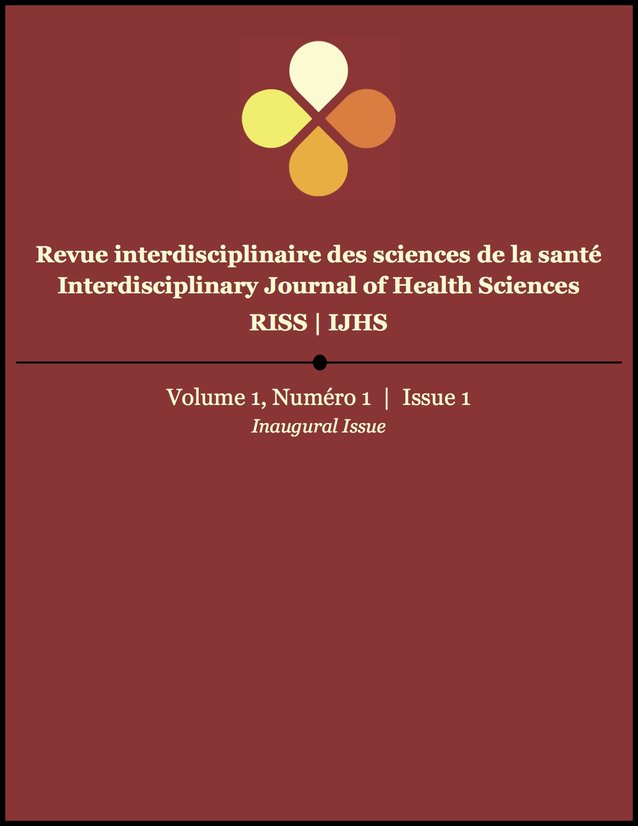Personal Health Responsibility: Blaming Victims or Empowering Nations?
DOI :
https://doi.org/10.18192/riss-ijhs.v1i1.1538Mots-clés :
N/ARésumé
The place for personal responsibility within healthcare has been highly contested within academic debate. Meanwhile, leading causes of death within the United States have shifted to chronic disease as a result of lifestyle behaviours suggesting the need for health promotion to take action. In this position paper, I will argue that the less punitive element of personal responsibility implied by health promotion is both ethically justifiable and beneficial as a means of empowering the individual, population and healthcare system as a whole. Several counter-arguments are presented and subsequently refuted: health responsibility unduly places blame upon vulnerable populations; administration of negative sanctions based on health responsibility is difficult; and actions detrimentally affecting health are not certain to be autonomously undertaken by the individual. Arguments in favour are then presented: a dependence of the population upon the healthcare system has been created; empowerment is effective as the central guiding principle of health promotion; and sensible care for oneself should be a duty of citizens, which they are required to fulfill as the healthcare system is not in a position to act as an unlimited resource. As such, health promotion must continue to emphasize the importance of sensible health behaviour as a means of empowering individuals through self responsibility.
Références
Ampt, A. J., Amaroso, C., Harris, M. F., McKenzie. S. H., Rose, V. K., & Taggart, J. R. (2009). Attitudes, Norms and Controls influencing Lifestyle Risk Factor Management in General Practice. BioMed Central Family Practice, 10, 59. doi: 10.1186/1471-2296-10-59
Braunack-Mayer, A., & Louise, J. (2008). The ethics of Community Empowerment: tensions in health promotion theory and practice. Promotion and Education, 15(5), 5-8. doi: 10.1177/1025382308095648
Buyx, A. M. (2008). Personal responsibility for health as a rationing criteria: why we don't like it and why maybe we should." Journal of Medical Ethics, 34(12), 871-74. doi: 10.1136/jme.2007.024059
Clark, J. N. (2008). Health, Illness, and Medicine in Canada. 5th ed. Don Mills: Oxford UP.
Denier, Y. (2005). On Personal Responsibility and the Human Right to Healthcare. Cambridge Quarterly of Health Ethics 14(2), 224-34. Retrieved from http://dx.doi.org/10.1017/S0963180105050309
Galloway, R. D. (2003). Health Promotion: Causes, Beliefs and Measurements. Clinical Medicine and Research, 1(3), 249-58.
Guiet, C. Student Health Coordinator, uOttawa Health Promotion. The Element of Health Responsibility within Health Promotion. Personal interview. 11 Nov. 2009.
Schmidt, H. (2009). Just Health Responsibility. Journal of Medical Ethics, 35, 21-26. doi: 10.1136/jme.2008.024315
Segal, J. (2005). Health and the Rhetoric of Medicine. Carbondale: Southern Illinois UP.
Sethna, C. Medicalization. History of Healthcare. University of Ottawa, Ottawa. Apr. 2009 Lecture.
Téléchargements
Publié-e
Numéro
Rubrique
Licence
- Tous les auteurs dont l’article est publié dans la RISS en conserveront les droits.
- Les auteurs accordent à la RISS le droit d’être la première à publier les articles qui lui sont soumis.
- Tous les articles publiés dans la RISS sont autorisés en vertu d’une licence Creative Commons Attribution à être circulé si les auteurs et la revue de la publication originale sont reconnus.
- La RISS est publiée en ligne et imprimée. La RISS n’est pas responsable de l’utilisation non autorisée du contenu publié sous forme électronique ou imprimée.
- La RISS retient les droits de distribution de tout le contenu.
- Les auteurs, et non la RISS, sont responsables d’avoir obtenu les permissions nécessaires concernant les travaux cités.


